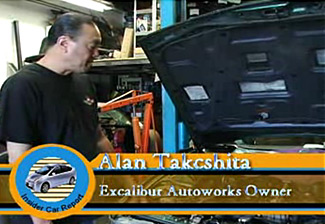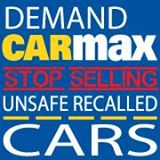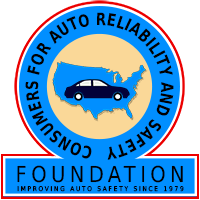Resources for Car Buyers
Look up Safety Recalls
Be sure to ALWAYS check the safety recall status of any car before you buy. If it has a safety recall pending, it could KILL you and your passengers. It's basically a ticking time bomb. Don't buy it until AFTER the recall repairs have been performed. People have been killed or seriously injured within hours or days of buying a car with safety defects that led to a recall. According to Carfax, there are 36 million vehicles on the road today that have unrepaired safety recalls. Typical problems that trigger safety recalls:
- brakes that fail
- axles that fall apart
- vehicles that burst into flames without warning
- air bags that explode when there's no crash
- steering loss
- cars that die in traffic
- seat belts that don't work
TOP TWELVE TIPS FOR BUYING A USED CAR
Save thousands of dollars
Get a better, safer car
Avoid common auto dealer scams
Get a better, safer car
Avoid common auto dealer scams
To make sure that your hard earned money buys you a car that is safe and that you can feel assured is a good value for the money you spent, follow these guidelines so that you can be prepared before you sign that bill of sale.

Insurance Institute for
Highway Safety photo.
Get auto safety information:
The National Highway Traffic Safety Administration: Find out
about vehicle safety recalls. Get advice about safer cars for teenagers. Check crash tests results. Learn
about how to properly secure child safety seats. Get technical service bulletins from auto manufacturers
that document common problems. File a safety complaint.
Search vehicle history:
Don't get stuck with an unsafe rebuilt wreck. Check here before you
buy. The U.S. Department of Justice established this database to provide lifesaving information about
cars so severely damaged they were "totaled" by insurance companies. This is the most important
used car database, and it's also the least expensive. No other database has the same information.
Note: Even if a car has a "clean" vehicle history report, get it inspected by a trusted technician and
body shop before you agree to buy it, and take it for a test drive. An online check is only the first step.
Find a consumer attorney:
The National Association of Consumer Attorneys lists pro-consumer
attorneys by state and area of expertise. Many are willing to talk with consumers for free and give you
some idea what your rights are. Be sure to ask them if they will represent you on a contingency basis,
which makes getting legal help more affordable and less risky for you. Many consumer protection laws
provide for you to get your attorneys fees paid by the business that harmed you, if/when you win.

C.A.R.S. archive photo.
Find a reliable mechanic:
National Public Radio's Car Talk's Mechanics Files is a great place to find a skilled auto technician who gets rave reviews. Look here before you go car shopping, to find auto experts who will give cars a thorough inspection before you buy. You're going to need a reliable
mechanic anyway. Shop for the mechanic before you shop for the car, and save yourself a lot of money
and headaches.
Get more auto safety information:
The Insurance Institute for Highway Safety performs more
crash tests and makes recommendations for safer cars. Find ratings of child booster seats. Find which
cars offer better protection from whiplash or other devastating injuries from rear-end collisions. Learn
which cars have energy-absorbing bumpers that can save you thousands in repair costs.
For California Consumers ONLY
California offers a low-cost auto insurance program that makes driving legally in California more affordable for lower income car owners.
Read more:
Read more:
To find out whether your state offers a similar deal, visit the website for the Department of Insurance in your state.
Our Mission
The CARS Foundation is a non-profit,
tax-exempt organization founded in 1979
that prevents motor vehicle-related fatalities,
injuries, and economic losses through
education, outreach, aid to victims,
and related activities.
tax-exempt organization founded in 1979
that prevents motor vehicle-related fatalities,
injuries, and economic losses through
education, outreach, aid to victims,
and related activities.

Avoid Deadly Safety Defects
ALWAYS check for safety recalls before you buy.
Regularly updated safety recall data is free,
at the website for the
National Highway Traffic Safety Administration.
If the recall repair hasn't been done,
don't buy that car!!
CarMax advertises its vehicles passed
a 125-point inspection.
But FAILS to fix deadly safety recall defects.
Help save precious lives.
Spread the word:
BOYCOTT CarMax
Regularly updated safety recall data is free,
at the website for the
National Highway Traffic Safety Administration.
If the recall repair hasn't been done,
don't buy that car!!
WARNING!!!!
CarMax advertises its vehicles passed
a 125-point inspection.
But FAILS to fix deadly safety recall defects.
Help save precious lives.
Spread the word:
BOYCOTT CarMax
Take Action

Over 117,000 people have signed
CARS' petition on Change.org
calling on CarMax to stop
selling hazardous recalled cars
with deadly safety defects.
But they keep endangering precious
lives. This has to stop!
Sign CARS' petition:
Tell CarMax to stop selling unsafe,
recalled cars to consumers!
CARS' petition on Change.org
calling on CarMax to stop
selling hazardous recalled cars
with deadly safety defects.
But they keep endangering precious
lives. This has to stop!
Sign CARS' petition:
Tell CarMax to stop selling unsafe,
recalled cars to consumers!
DANGER!!!
CarMax sells cars with
deadly safety recall defects.
ABC's 20/20 went undercover and caught
CarMax up to their sneaky tricks.
More than 787,000 viewers have watched this video clip on CARS' YouTube channel
Help save lives -- share the link!
deadly safety recall defects.
CarMax up to their sneaky tricks.
Shopping for a safe, reliable used car?
Buying used cars from car dealers is extremely
risky. A bad car deal can ruin your life, or even
kill you and your family. So why even go there?
Here are 12 easy tips from pro-consumer experts for how to avoid a lot of hassles, save a ton of money, and get a safe, reliable used car. All without having to give your hard-earned cash to a greedy car dealer.
Did a dealer sell you an unsafe, recalled car?
We want to hear your story.
Contact The CARS Foundation
Here are 12 easy tips from pro-consumer experts for how to avoid a lot of hassles, save a ton of money, and get a safe, reliable used car. All without having to give your hard-earned cash to a greedy car dealer.
Did a dealer sell you an unsafe, recalled car?
We want to hear your story.
Contact The CARS Foundation
